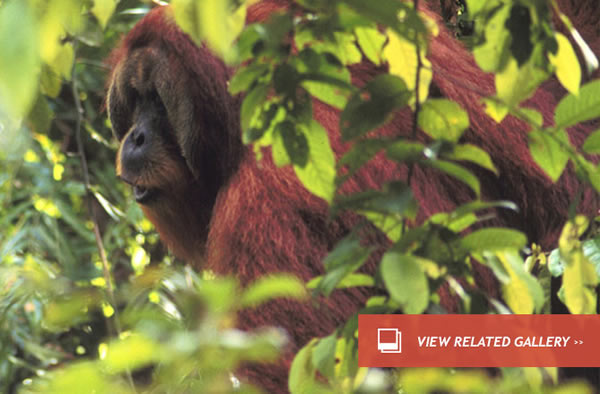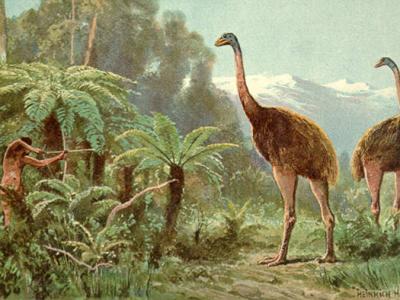Orangutans Share Trip Plans a Day Before Leaving
Orangutans Share Trip Plans a Day Before Leaving
Orangutans not only plan their travel routes in advance, but they also inform others about their trip a day ahead of time.
This very human-like behavior implies other things about orangutans.
“Our study makes it clear that wild orangutans do not simply live in the here and now, but can imagine a future and even announce their plans,” primatologist Carel van Schaeik of the University of Zurich, who conducted the study, was quoted as saying in a press release.
Video: Orangutan Uses Towel to Cool Off Explained
“In this sense, then, they have become a bit more like us,” he added.
The findings are published in the latest PLoS ONE.
The study must have been arduous. For years, Van Schaeik and his team followed wild orangutans throughout the dense tropical swamplands of Sumatra. As they did so, they noted the orangutans’ vocalizations, body language, travel and more.
Adult males are the ones who travel the most among orangutan groups. They usually head out into the forest alone, but they also maintain social relationships with potential female mates and other males. The males fall into a hierarchy, with dominant and more submissive orangutans in the mix.
To stay in touch with these individuals, the males will sometimes emit loud, long calls. If you’ve ever seen an orangutan yelling, at a zoo or in TV footage, you’ll recall that their cheeks puff out. That’s because their cheek pads serve as a funnel for amplifying sound, similar to a megaphone. It’s quite a sound! Seems like a lot of emotion goes into it.
“To optimize the effect of these calls, it thus would make sense for the male to call in the direction of his future whereabouts, if he already knew about them,” van Schaik said. “We then actually observed that the males traveled for several hours in approximately the same direction as they had called.”
Additionally, the males often announced changes in travel direction with a new call. Researchers haven’t yet fully deciphered orangutan vocalizations, but such calls likely communicate location, sex, the individual’s size, age, maybe his name (Dolphins can name themselves, so maybe orangutans do too?), mood and other information.
Some of this info is inferred just by the sound. Deeper voices are often associated with larger males, for example.
If the travel plans changed, the other orangutans reacted correctly to the long call of the previous evening, even if no new, long call was emitted. “Correctly” in this case refers to females coming closer and non-dominant males hurriedly moving away from where the bossy caller plans to travel.
Image: University of Zurich(Sep 11, 2013 05:00 PM ET // by Jennifer Viegas)












